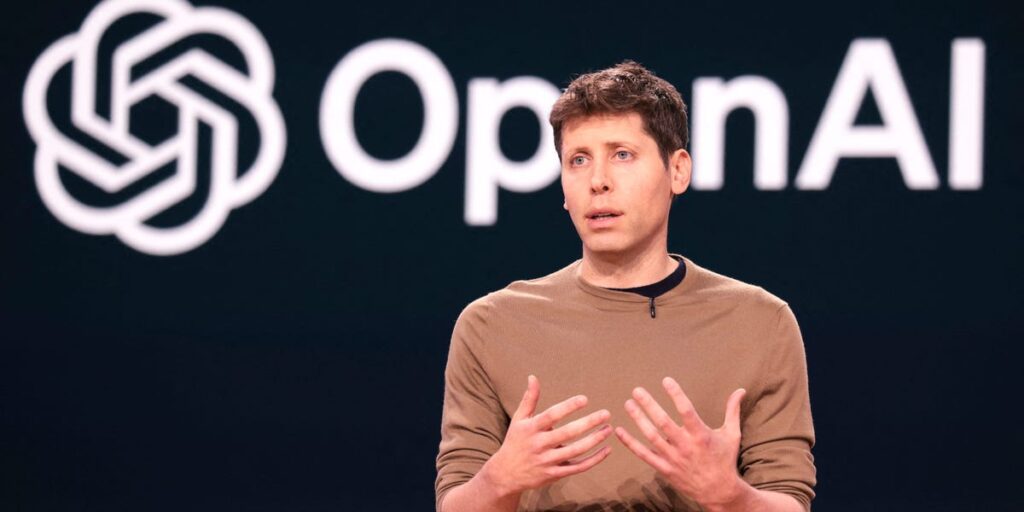- OpenAI acquired the URL “chat.com,” which now redirects to ChatGPT.
- HubSpot’s cofounder Dharmesh Shah previously owned the domain, paying over $10 million.
- Analysts say the move strengthens OpenAI’s global reach and consumer product positioning.
OpenAI’s splashy acquisition of a four-letter domain name is a smart strategic play, branding experts told Business Insider.
On Wednesday, OpenAI CEO Sam Altman posted “chat.com” on social media, a URL that now automatically redirects to ChatGPT’s website.
The domain was previously owned by HubSpot founder and CTO Dharmesh Shah, who confirmed that he sold the domain to OpenAI after buying it in 2023.
Although Shah did not disclose its exact sale price, he previously said he “sold it for more than I paid.” In his Wednesday post, he hinted that he had received shares in OpenAI as a result of the transaction.
BREAKING NEWS: Secret acquirer of $15+ million domain chat .com revealed and it’s exactly who you’d think.
For those of you that have been following me for a while, you may recall that I announced earlier this year that I had acquired the domain chat .com for an “8 figure sum”… https://t.co/nv1IyddP5z
— dharmesh (@dharmesh) November 6, 2024
OpenAI did not respond to a request for comment from Business Insider.
OpenAI could be trying to make ‘Chat’ the new ‘Google it’?
The latest addition to OpenAI’s domain collection, which also includes “chatGPT.com” and possibly “ai.com,” suggests a branding shift toward a wider consumer audience, brand experts told BI.
Margarita Polishchuk, head of strategy at Clay, a UI/UX design and branding agency with clients including Amazon and Google, said that OpenAI is “securing and strengthening their position” with its new simplistic — and, therefore, stronger — domain name.
“It’s very memorable and super on point,” she told BI. “Strategy-wise, I think that for ChatGPT and OpenAI, purchasing a domain like this marks its shift toward a very global audience.”
While Google’s Gemini and Microsoft’s Copilot are also sticking to one-word monikers, Gil Luria, an analyst at D.A. Davidson, said the domain is the “most intuitive name” for how consumers think of chatbots.
“I think the hint that we may be getting from this is that they may want to productize their chat as a consumer product,” he said. The new domain “could be a very significant asset in consumer adoption of a particular technology,” he added.
The new URL could also be the more practical result of a common linguistic error. Nicole Ferry, chief strategy officer at Sullivan NYC, a brand engagement firm, said that she often notices people switch the letters of ChatGPT to “GTP.”
“‘ChatGTP’ actually redirects to NinjaChat AI, which is obviously not OpenAI’s product,” she said. “So having chat.com is simply also just an easier URL to use in a call to action.”
She also added that the company’s decision to focus on “chat” rather than “GPT” makes the product more approachable.
“It sounds easy,” she said. “I can do that. I chat on my phone with my friends or in DMS or whatever. It feels like something I can already do versus something I have to learn.”
While “chat” has been a part of the English lexicon to indicate a human interaction, Polishchuk said this marks the incoming of a “major technical shift” in how people may perceive the term.
“So now any user that is not really tech savvy, when they type in chat.com, they will immerse themselves into the world of LLM and AI,” she said.
While people might not quite be saying, “Go ChatGPT it,” Polishchuk said acquiring a domain with just the word “chat” could propel the AI to become similarly ubiquitous, like “Googling.”
Read the full article here


